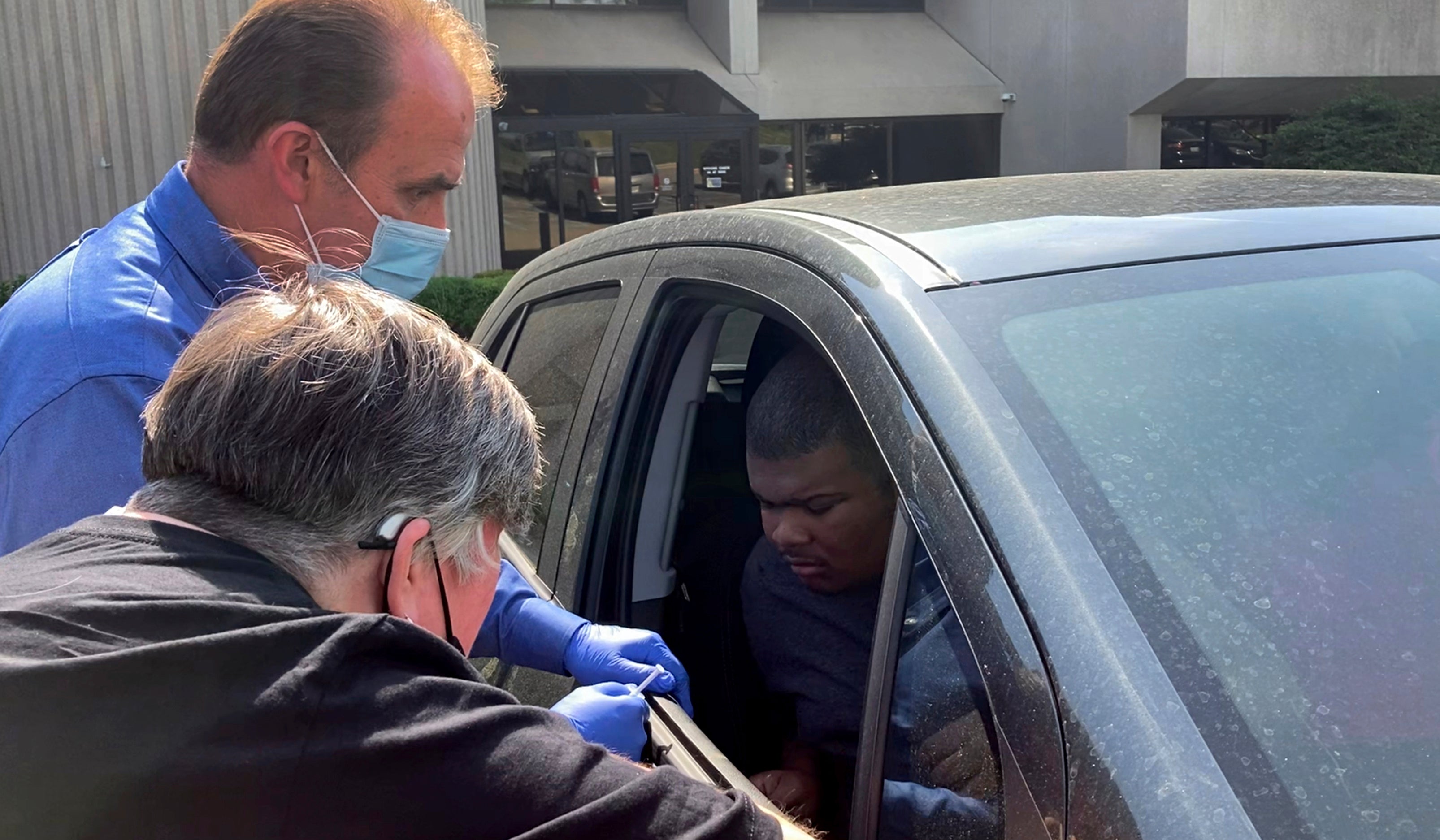Michigan nonprofit helps vaccinate those with disabilities
A nonprofit dedicated to assisting those with developmental disabilities has been hosting COVID-19 vaccination clinics at its offices in suburban Detroit

Your support helps us to tell the story
From reproductive rights to climate change to Big Tech, The Independent is on the ground when the story is developing. Whether it's investigating the financials of Elon Musk's pro-Trump PAC or producing our latest documentary, 'The A Word', which shines a light on the American women fighting for reproductive rights, we know how important it is to parse out the facts from the messaging.
At such a critical moment in US history, we need reporters on the ground. Your donation allows us to keep sending journalists to speak to both sides of the story.
The Independent is trusted by Americans across the entire political spectrum. And unlike many other quality news outlets, we choose not to lock Americans out of our reporting and analysis with paywalls. We believe quality journalism should be available to everyone, paid for by those who can afford it.
Your support makes all the difference.LaQuae Lebon wants her 16-year-old son to get the COVID-19 vaccine.
Making it happen, though, is a different story.
Lebon brought Noah, who is non-verbal, to a vaccine clinic on Thursday hosted by JARC, a suburban Detroit nonprofit dedicated to assisting those with developmental disabilities.
JARC has hosted a dozen community vaccine clinics at its offices since March, partnering with Oakland County to provide a comfortable and supportive environment designed to put those with disabilities — or any vaccine recipient — at ease.
“The only way to make sure that we reach those milestones is to get the vaccines to every person possible where they need it and in the manner in which they need it," said Shaindle Braunstein, the CEO of JARC.
In Noah's case, a health care professional and several JARC representatives tried several different techniques, including playing his favorite song and giving him some Play-Doh but nothing persuaded the teenager to sit for the shot. They even tried administering it while Noah sat in a car in the parking lot.
“He’s really scared of shots," his mother said. "I don’t know how much he understands. But just being in a new environment, he just doesn’t want to take the shot.”
Braunstein said JARC will continue to host clinics until there's no longer a need. They are open to anyone, not just those with disabilities, and have hosted between 50 to 600 people, depending on the day.
Lebon said she'll be back with her son — probably in a week's time.
"I’m sure he's eager to get back to school and his daily activities. So, we’re just going to try again,” she said.